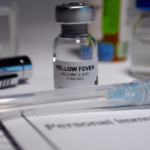Family trips are a treasure trove of memories, but they also come with their share of unexpected bumps and scrapes. Ensuring you have a well-prepared travel health kit can make all the difference, letting you focus on the fun and adventure.
Importance of CPR and First Aid Training
Knowing CPR and basic first aid can be a lifesaver—literally! Many CPR training facilities offer family-friendly classes that equip you with essential skills for handling medical emergencies.
Some even provide free training for children when they attend with an adult, making it a family-friendly way to prepare for the unexpected. By investing a little time in these courses, you can travel with the confidence that you’re ready to protect your loved ones.
Key Items for Families on the Go
When you are on the road with kids, a standard travel first aid kit might not cover all the bases. Here are a few extra essentials to keep your little ones safe and comfortable on your adventures.
Kid-Friendly Medications
Kids are not just small adults—they need medications tailored specifically for them. Make sure to pack age-appropriate pain relievers, such as liquid acetaminophen or ibuprofen. These can be lifesavers for unexpected fevers, headaches, or teething pain.
Fever Management
Kids seem to run fevers at the most inconvenient times, do they not? A digital thermometer is a must-have. It is quick, accurate, and helps you keep an eye on any potential fevers, allowing you to act swiftly if something seems off.
Skin Soothers
Nature is full of wonders… and annoyances like insect bites and rashes. Hydrocortisone cream can help soothe itching and inflammation from bug bites, minor rashes, or allergic reactions to poison ivy. It is a small tube that can make a big difference in keeping everyone comfortable.
Fun Bandages
Let us face it—kids get scrapes and cuts often. Child-sized adhesive bandages with fun designs can turn a minor mishap into a quick fix and maybe even a moment of comfort. Plus, they are more likely to keep a bandage on if it features their favorite cartoon character!
Allergy Relief
Traveling can expose your family to new allergens, whether it is pollen from a different region or a pet at your rental home. Liquid antihistamines can relieve allergy symptoms quickly and are easy for kids to take.
Remember, having these family-specific items in your travel first aid kit ensures you are ready for those little surprises that come with traveling with kids. It is all about being prepared so you can spend more time making memories and less time worrying about the what-ifs!
Remedies for Motion Sickness
Ah, motion sickness—the unwelcome travel companion no one invites. Whether you are hitting the road, cruising the seas, or flying high, it can strike at the worst times. Fortunately, there are some simple remedies to keep everyone feeling their best.
For motion sickness, pack over-the-counter medications like Dramamine or Bonine, which can prevent and relieve symptoms. If you prefer natural remedies, ginger candies or tablets and acupressure wristbands are excellent alternatives to settle an uneasy stomach.
Emergency Preparedness
Emergencies are unpredictable, but being prepared can make all the difference. Include a CPR face shield in your travel health kit for safe resuscitation in case of a serious incident. Do not forget an emergency contact card with crucial information like your family member’s medical details, email address, phone number, and known allergies. Lastly, pack small scissors and tweezers—essential for cutting bandages or removing splinters and bee stingers, ensuring you are ready for any unexpected situation.
Tips for Packing and Storage
Keeping your travel first aid kit organized and accessible is key to handling any situation quickly. Opt for a compact, waterproof container to protect your first aid supplies from moisture and spills. Store the kit in a central spot in your travel bag so you can grab it at a moment’s notice. Regularly check and update your medical supplies to replace any expired items, ensuring everything is always in tip-top shape for your family’s adventures.
Comprehensive First Aid Supplies
Stock your travel first aid kit with essential first aid items: adhesive bandages, antiseptic wipes, antibiotic ointment, gauze pads, adhesive tape, cotton swabs, and a bandage wrap. Add specific travel medicine items like oral rehydration salts, motion sickness medication, cough suppressants, mild laxatives, pain relievers, Pepto-Bismol, and bismuth subsalicylate. Include an emergency blanket, insect repellent, antibacterial hand wipes, hand sanitizer, face masks, eye drops, and aloe vera gel for complete preparedness.
Managing Prescription Medications
Ensure you have enough medication for the entire trip stored in their original containers. This includes any prescription medications you or your family members take regularly. It is a good idea to carry an extra pair of glasses or contacts and any other necessary medical supplies. Consulting with your healthcare provider before your trip can help ensure you have everything you need.
Importance of CPR and First Aid Training
Knowing CPR and basic first aid can be a lifesaver—literally! Many facilities offer comprehensive training that equips you with essential skills for handling medical emergencies. Some even provide free training for children when they attend with an adult, making it a family-friendly way to prepare for the unexpected. By investing a little time in these courses, you can travel with the confidence that you are ready to protect your loved ones.
Conclusion
A well-prepared travel first aid kit is your travel safety net, ensuring peace of mind and swift action in emergencies. By including these essential first aid supplies, you are ready for anything, allowing you to enjoy your family adventures to the fullest. Safe travels!







